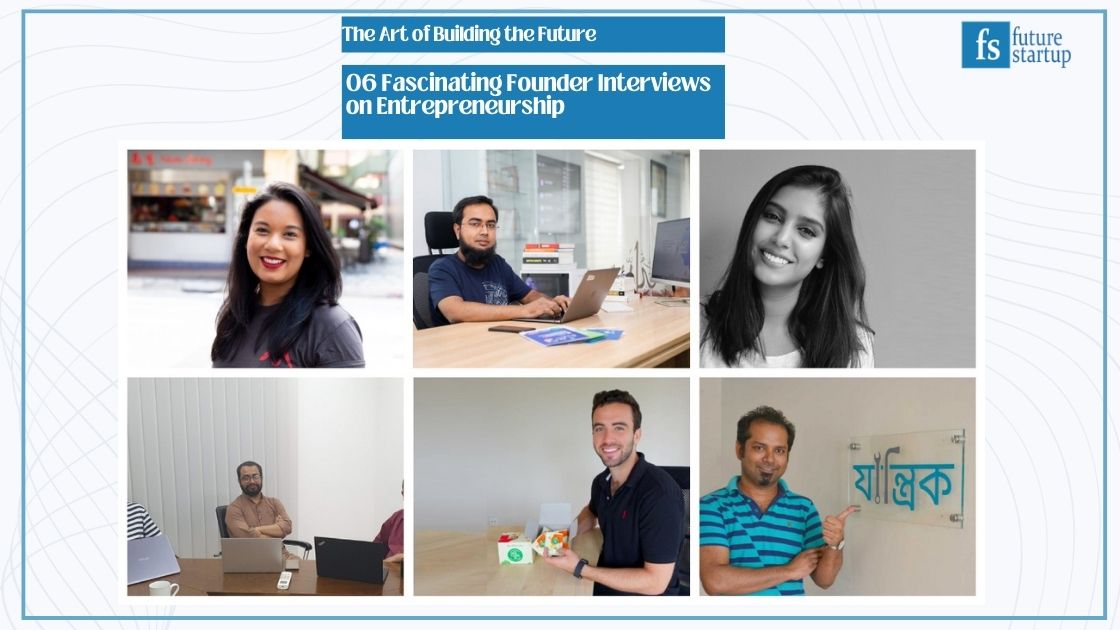
Our latest collection features 06 brilliant founder interviews from our archive:
Learn about what it takes to build a business from scratch, design a growth organization, navigate the challenges of entrepreneurship, operate in the face of obstacles and insurmountable challenges, and learn the art and science of building an enterprise.

This week at Founder at Work, we speak with ISHO Founder and Managing Director Rayana Hossain about her early life, how her childhood and upbringing continue to shape her life and work, her path to what she is doing today, and behind the scenes of ISHO. We explore how she found ISHO, how ISHO has evolved over the past year, insights from her entrepreneurial journey and growing a business, and much more.
Here are a few highlights from our conversation
I am fortunate that I come from a family of entrepreneurs and business owners, which, while I was growing up, allowed me to understand the various nuances of running a business. This exposure has allowed me to take on the challenges and responsibilities of running a business today.
The main challenge for us is to solve how we can change perceptions and consumer behavior by bringing about a new-found appreciation for design. With this in mind, we’ve always tried to be innovative in our approach.
We have followed a calculated strategy of online-first. Our first 100 customers came through organically by word of mouth and digital marketing.
ISHO takes inspiration from global locations and the history of various different materials when it comes to designing a particular collection or product.
Inclusiveness is a part of our culture and we ensure that gender is never a barrier to growth. I personally believe in women empowerment and we constantly strive to achieve that within the organization.
Challenges and stress shouldn’t be yours alone and I personally try and adopt a collaborative approach at ISHO.
Never stop believing in what you want to achieve.
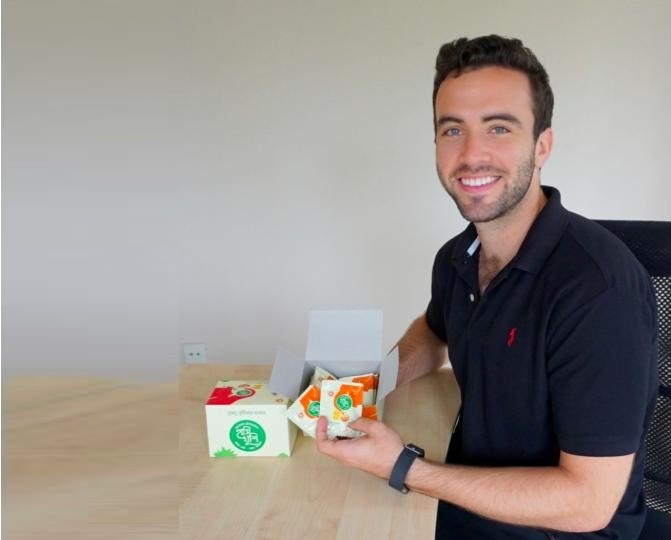
Frontier Nutrition CEO and co-founder Eddie Bearnot walks us through his early life, how his childhood and upbringing continue to shape his life and work, his path to what he is doing today, gives us a peek behind the scenes of Frontier Nutrition, and much more.
Highlights:
I’m the youngest of my parents’ three children, and my two older brothers are extraordinarily smart and successful. I think part of my desire to move across the world and build something from scratch comes from a need to prove to myself my own unique abilities.
Pick the most important metrics for your success, measure them rigorously and religiously, spend time thinking about them carefully, and trust your conclusions. It is easy to let personal preference dictate strategy or to allow emotional attachment to make convenient excuses for poor performance.
Routine and community. Life as a founder is chaotic and uncertain. For me, a fixed daily routine helps me take back control.
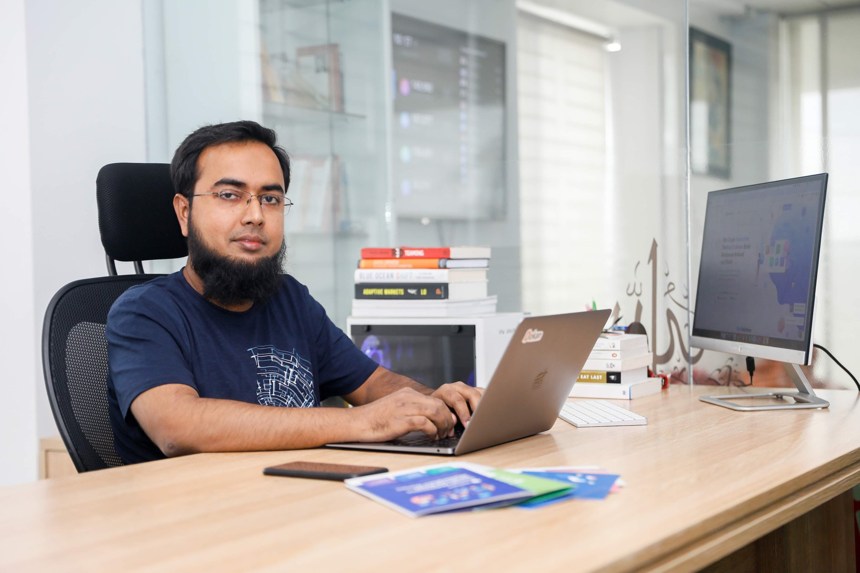
weDevs CEO and co-founder Md Nizam Uddin walks us through his early life, how his Childhood and upbringing continue to shape his life and work, his path to what he is doing today, gives us a peek behind the scenes of his company and discusses his philosophy on doing good work, the state of weDevs today and its ambition going forward, how weDevs operates, the art of growing a software company, talks about the challenges of being a founder, building a positive culture, dealing with challenges and stress, and reflects on relying on Allah and the concept of perpetual good deeds in Islam, making a positive difference, and learning to stay productive while living a good life and so much more.
Here are a few highlights from our conversation:
While my parents tried to instill certain values and teaching in me, my father has also given me a lot of freedom. He never forced anything upon me. When needed, he taught me. Nudged me towards doing the right things. It has helped me to grow up independent and learn to think for myself.
weDevs is not my first startup. I first became interested in entrepreneurship in 2010. Subsequently, I tried to identify problems that could be solved using technology. First, I started a news portal with my friend BM Sharif aimed at campus news and students. Later in 2011, I started working with my friend, Tareq, on education. We provided physical training to 60/70 people, provided free video tutorials, online training, and a freelancing marketplace. But we had to shut it down and the experience was not particularly good. In 2012, I and Tareq started weDevs in a rented house in Rajshahi.
weDevs has 9 large and revenue-generating products and 2 services. Our products have combinedly been downloaded more than 5 million times.
I wake up between 4 and 5 in the morning. If I go to bed late, I usually take a nap after Fajr prayer. I exercise a little in the morning, study, and prepare the instructions that I have to give to my teammates throughout the day.
My limitations and lack of skills were a challenge as well in the early days. I initially lacked many skills required to run a business. I believe an entrepreneur should not blame others rather he should come up with his strategies to address problems.
Our business model is freemium. We have a free version of each product and a pro version with more premium features. We have 2 products with monthly subscriptions and the rest are with annual subscriptions. We generate revenue from the pro versions of the products.
We believe that if one is an honest and good person and is willing to learn, his performance will improve, inshaAllah. We value efforts over results.
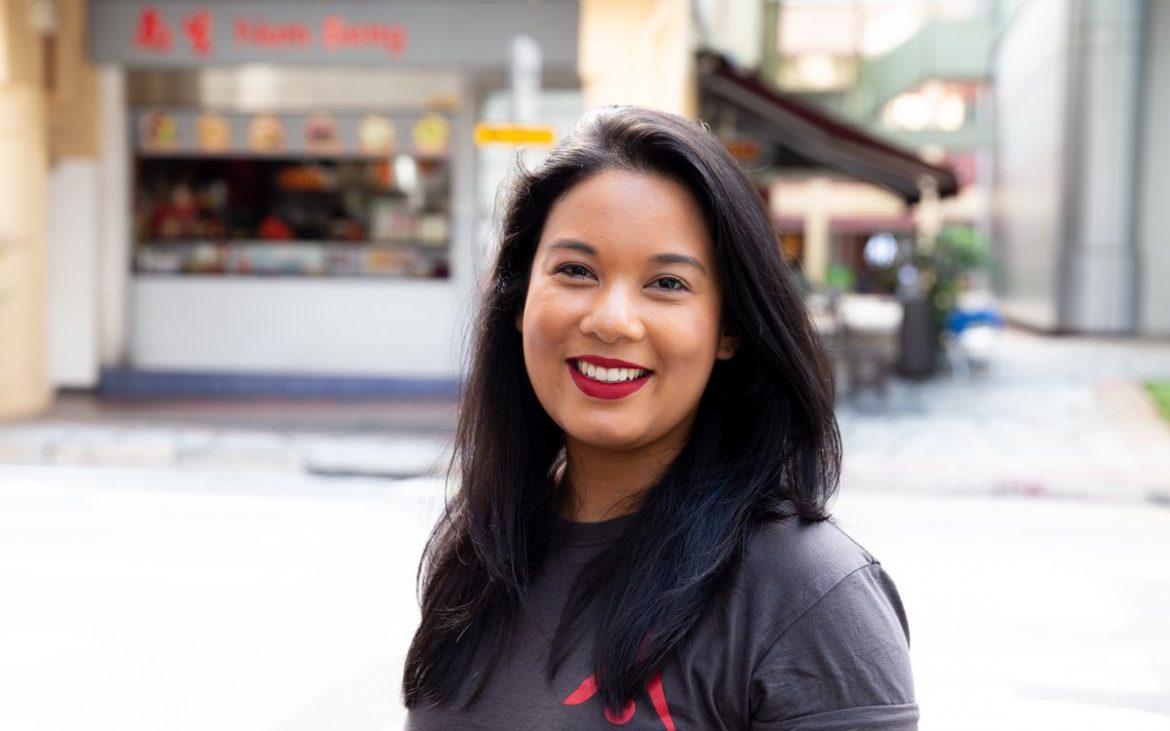
From Zimbabwe to Australia to Singapore, from working for UN Women to the world of startup investing, in this fascinating interview Accelerating Asia Co-founder Amra Naidoo walks us through her early life, how her childhood experiences continue to shape her life and work, her path to what she is doing today, gives us a peek behind the scenes of Accelerating Asia, discusses her investment philosophy, how Accelerating Asia operates and works with startups in the region, talks about everything startup, what separates winning startups, useful founder traits, mistakes founders make when trying to raise investment, the challenges of being a founder, dealing with challenges and stress, and reflects on death, regrets and legacy.
Here are a few highlights from our conversation:
I was born in Zimbabwe and lived there until my early teens before moving to Australia. I actually came to Singapore after leaving my marketing job in Australia in 2013, for a 3-months internship at UN Women Singapore. It was a massive risk for me at the time, and I chewed through all my savings for the opportunity, but I was looking for a career change, and it ended up being the catalyst for everything that I’ve done since. That 3-months ended up turning into seven years in Singapore – much much more than I could have imagined!
I’m not one of those people who have always known what they want to do with their life, but I firmly believe that as long as you’re taking small steps in the direction that brings you closer to the things that fulfill you, then you will eventually get there.
We started with no investment capital and bootstrapped the business ourselves. We’ve been lucky to receive support for our accelerator from Enterprise Singapore, and from the excellent limited partners in our Venture Capital fund who trust us with their funds to invest in the startups selected for our accelerator program.
Being a first-time fund manager was a challenge when we first started. Although we had managed portfolios and investments before, we did not have our own funds. Hence I’m so grateful to the investors that came on board with our fund at the start, as without them we wouldn’t have been able to kickstart everything. Those investors enabled us to go on and raise more capital for our fund, invest in great startups, and prove out the Accelerating Asia model.
Accelerating Asia is headquartered in Singapore, and the Monetary Authority of Singapore licenses our early-stage venture capital fund. However, we have a portfolio footprint of pre-Series A startups that cover 10+ countries in South Asia and Southeast Asia. Our core focus is on the accelerator and venture capital fund, supporting startups to scale and grow while also de-risking investment for our Limited Partners. The program is run by a team of experienced startup founders, focusing on goal alignment from day 1 to generate relevant and high-impact results.
From an ecosystem development point of view, it still has some way to go in, coming into its own with common industry standards and sound governance practices among founders and investors. On this front, Bangladesh still has a way to go. Still, overall, I’m excited by the energy of the founders and investors in the ecosystem and hope that we can continue to participate in its growth actively.
Things can change quickly, and that applies to both. You have to be adaptable and act fast in certain situations to ensure your startup and business remain strong – COVID-19 is a good example of that.
I realized pretty early on in my life that I wanted to live a life with no regrets. I also want to live a life that has been full of giving, and that leaves the world a little bit better. I don’t want to look back at the end and realize that I didn’t do something because it made me uncomfortable or wished that I had done something or made a different decision. This doesn’t mean that you don’t make bad decisions, but bad decisions shape who you are and are made with all the available information that you had on hand at the time.
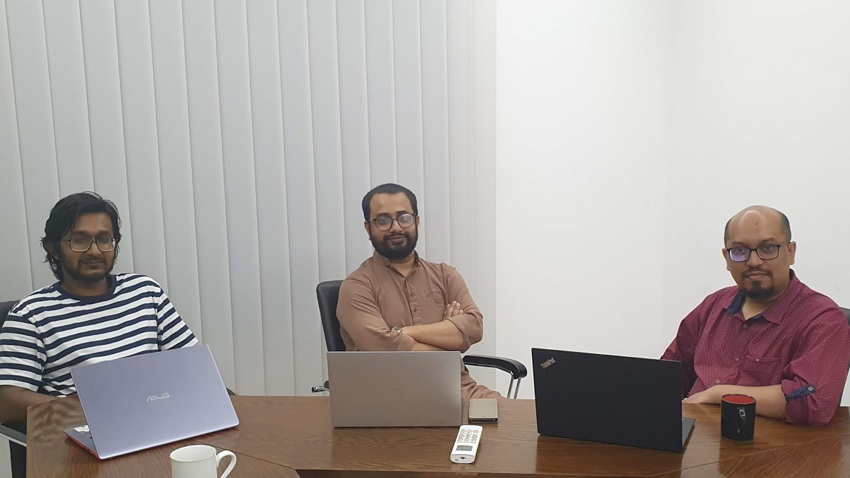
Ahmed Humayun Murshed, Faisal Mahmud Sajeeb, and Mezarul Musrufe Ontu are founders of Accfintax, an independent professional services provider with distinctive local strength and understanding in Accounting, Finance, Tax, VAT and Business Process Outsourcing (BPO). Founded in 2017, the company has experienced steady growth over the past years and worked with a long list of clients from across sectors and verticals using a combination of excellent service, commitment, and local understanding.
In this interview, we caught up with three founders of Accfintax Ahmed Humayun Murshed, Faisal Mahmud Sajeeb, and Mezarul Musrufe Ontu to learn more about the origin of Accfintax, Accfintax’s business today and ambition going forward, imperatives for entrepreneurship, and more.
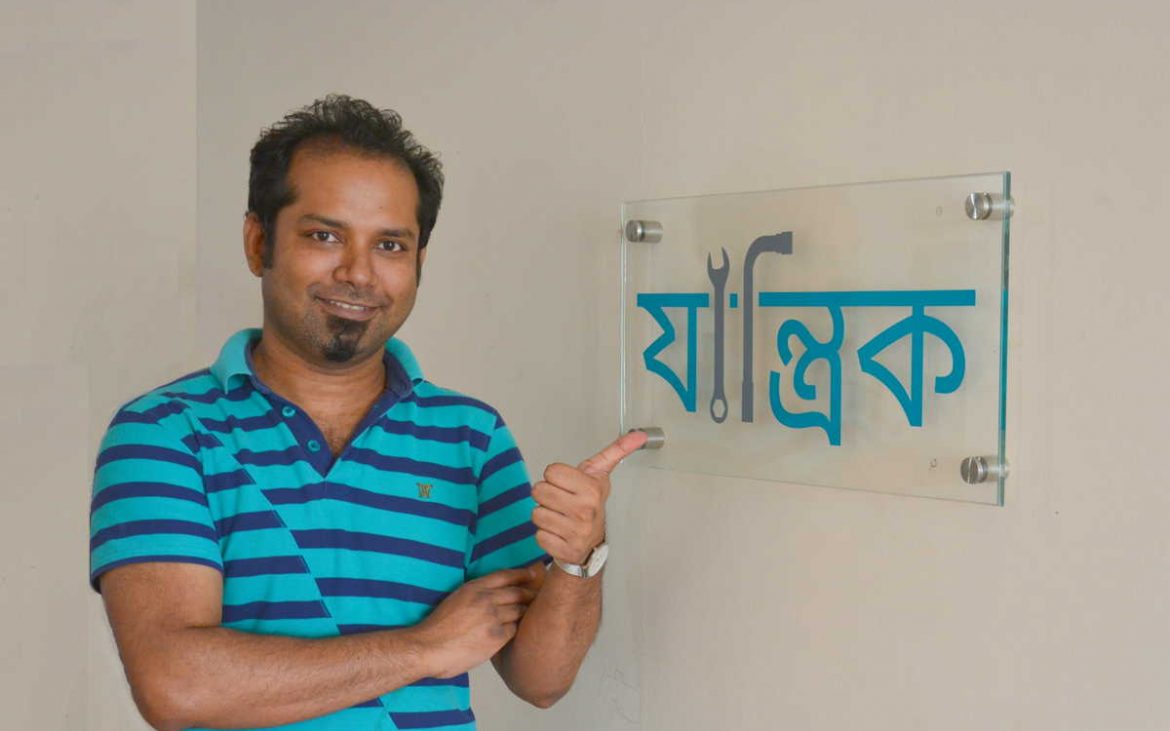
Zantrik Founder and CEO, Al-Farooque Shubho, discusses Zantrik’s transition to a new business model, the behind the scene of a successful pivot, developing strong competitive moats, how to develop processes that work, the importance of withholding yourself from taking action in order to see the bigger picture, the importance of reflection, and much more.
Here are a few highlights from our conversation:
Initially, we thought that releasing an app and connecting customers with garages are the solution. But that was not the solution. Because most customers have garages they know. Yes, they could take services comfortably using an app but the quality assurance problem was not getting addressed. That’s when we realized that probably we were trying to solve the symptoms, not the root problem. We realized that by solving symptoms we would not be able to move forward. We then did some studies to find some models through which we could solve the pain points of both garages and customers.
We tried to come up with a model that would solve the root problems of these two parties. We designed a Zantrik Standard model, which would standardize some garages with a standard service model. These garages will have unified decorations. Anyone will be able to spot that this is a Zantrik garage. These garages will have a standard pricing chart which will have all the pricing of car-related work listed on it. If you go to one of our Zantrik garages nobody will be able to deceive you. The price for a certain solution is standard across these garages.
We have made some important decisions to engage customers and become part of their daily needs. We have worked hard to identify where customers face severe problems.
Companies don’t need to pay us anything for using the Zantrik Fleet. Our real business is not software. Our real business is the standardization we are putting together, and the ecosystem we are building. Zantrik Fleet users will go to the Zantrik garages and we get a commission from there.
When we try to solve a problem, we often pay more attention to symptoms than the main problem. We rarely pay attention to finding and solving the root problem and we don’t do enough research. This is a huge lesson for me. As a result, we ended up investing in research and understanding the core problem.
I stay away from the action for a good amount of time every day. I don’t go to the office every day. I always want to have a bird’s eye view. If I remain busy in action, I can’t see where the problems are.
First published on October 15, 2020. Updated on November 17, 2024.
